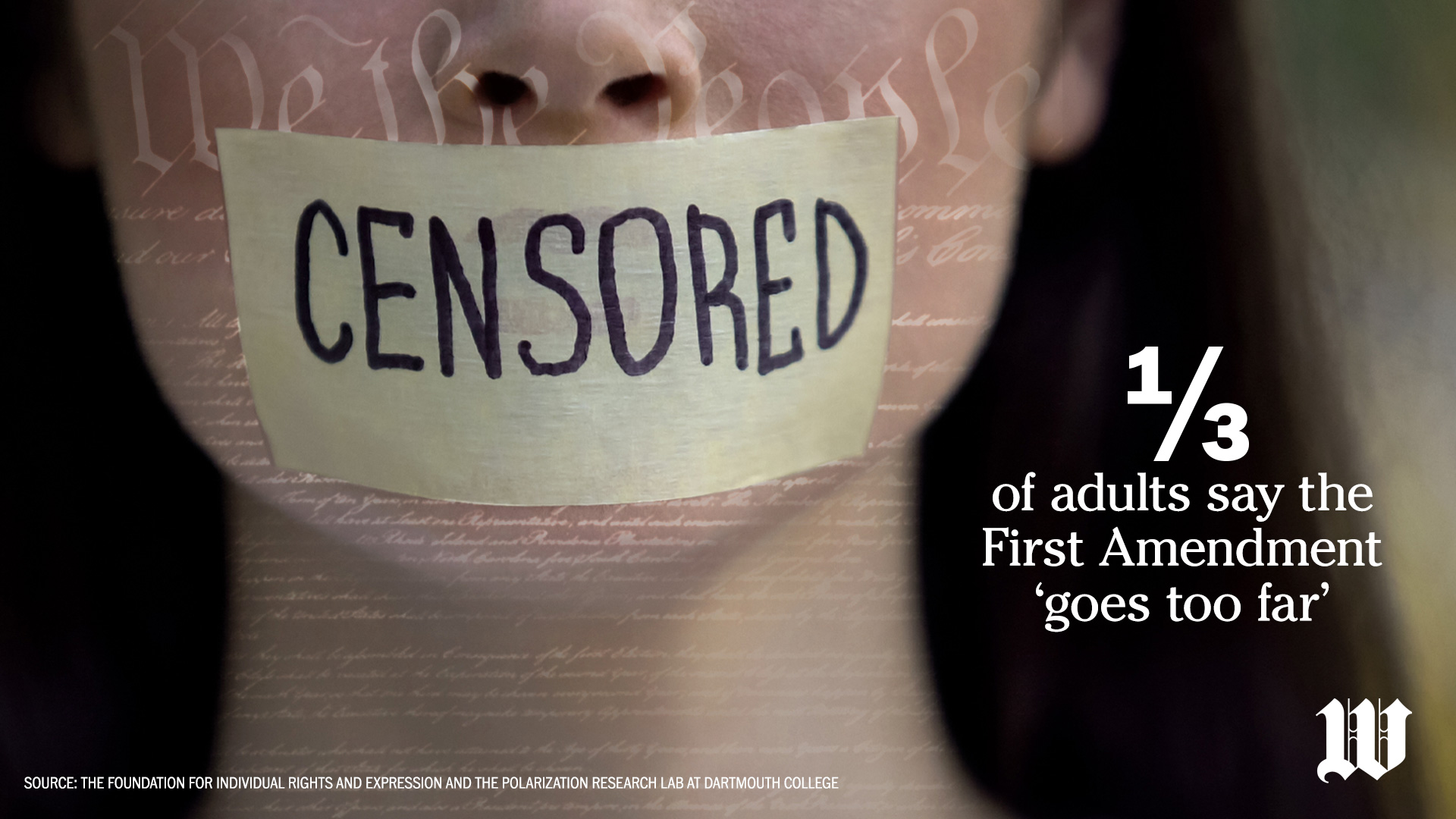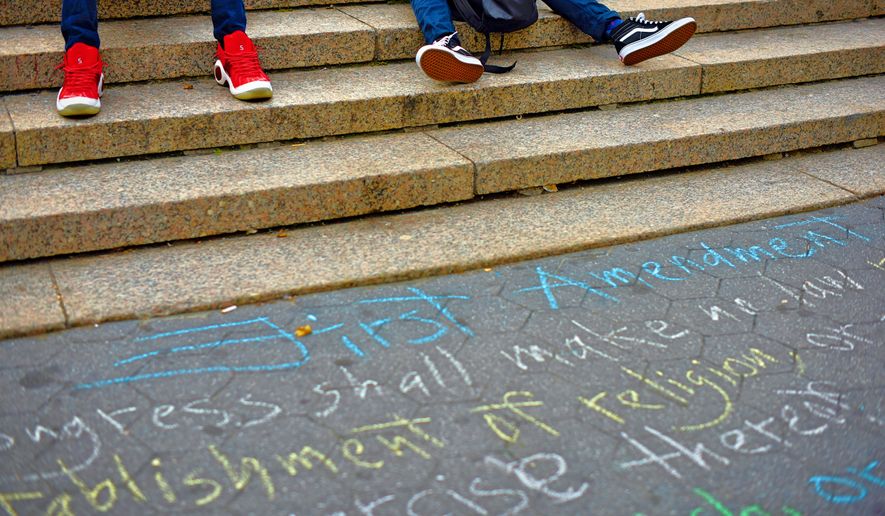Americans have a constitutional right to express themselves freely, but a new poll finds that many want to limit that freedom to those who offend them.
The Foundation for Individual Rights and Expression and Dartmouth College’s Polarization Research Lab reported Tuesday that 31% of adults surveyed said the First Amendment “goes too far in the rights it guarantees.”
Nearly a third of Republicans and a third of Democrats said they “completely” or “mostly” agreed with the statement.
The survey also found that most respondents wanted to ban public speeches and college professors from expressing the ideas that most offend them.

Responding to a list of controversial statements that the First Amendment protects, 19% of respondents described “All whites are racist oppressors” as the most offensive, making it the one they most wished to censor.
Several other expressions followed close behind this one on the “most offensive” list: 18% named “America got what it deserved on 9/11,” 12% flagged “January 6th was a peaceful protest” and 11% chose “Abortion should be completely illegal.”
Farther down the list, 4% picked “From the river to the sea Palestine will be free” — a slogan in recent pro-Palestinian protests against Israel that some Jewish groups have condemned as antisemitic.
The survey found that 52% of respondents said their community should ban public speeches promoting the statement they deemed most offensive. Another 69% said their local college should not allow a professor who promoted the idea to teach classes.
“Those results were disappointing, but not exactly surprising,” said Sean Stevens, FIRE’s chief research adviser. “Here at FIRE, we’ve long observed that many people who say they’re concerned about free speech waver when it comes to beliefs they personally find offensive. But the best way to protect your speech in the future is to defend the right to controversial and offensive speech today.”
Mr. Stevens said the Philadelphia advocacy group could not explain what drove respondents to favor censoring offensive views. He noted it’s the first time FIRE and Dartmouth have administered the survey.
Other key findings:
• Asked “whether people are able to freely express their views,” 69% said free speech in America is heading in the wrong direction, compared to 31% who believe it is on the right track.
• Just 25% of adults described the right to free speech today as either “very” or “completely” secure, compared to 29% who said it is “not at all” secure.
• Nearly half of Democrats and 26% of Republicans described free speech as heading in the right direction. More than a third of Republicans said free speech is already secure, compared to 17% of Democrats.
However, respondents expressed greater hesitation about suppressing written expression and livelihood.
The survey found that 59% of respondents opposed removing public library books containing the idea they found most offensive. Another 72% said employers should not fire people who express such beliefs from their jobs.
According to researchers who conducted the survey, partisan animosity toward free speech threatens the stability of the U.S. political system.
“Polarization not only divides Americans on policy, but it fractures our assessments of the stability of the bedrock features of our democracy,” said Sean Westwood, the director of Dartmouth’s Polarization Research Lab.
Dartmouth’s lab and FIRE conducted the poll online Jan. 12-19, surveying 1,000 members of a YouGov panel. The margin of error was plus or minus 3 percentage points.
• Sean Salai can be reached at ssalai@washingtontimes.com.




Please read our comment policy before commenting.